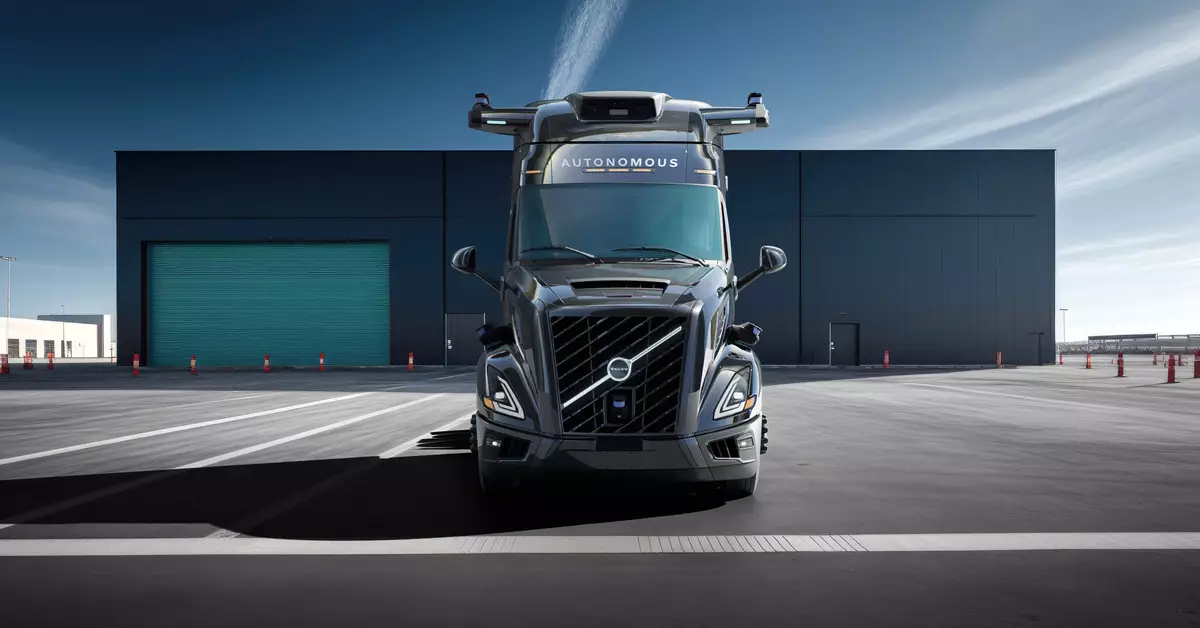In an era dominated by technological advancements, Volvo has taken a bold step forward in the world of transportation by unveiling its first “production-ready” self-driving truck in collaboration with Aurora, a prominent autonomous driving technology company. This innovative move is set to revolutionize the trucking industry by introducing autonomous driving capabilities to Volvo’s Class 8 semi truck, the VNL, designed for long-haul transportation.
The autonomous version of the truck is equipped with a range of sensors and cameras to support Aurora’s Level 4 autonomous driving system, allowing the truck to operate without the need for a human driver. Volvo and Aurora emphasize that the truck has been meticulously “purpose-designed and purpose-built” to seamlessly integrate Aurora’s self-driving hardware and software stack. Nils Jaeger, president of Volvo Autonomous Solutions, envisions this truck as the first of many models that will incorporate autonomy across all Volvo Group truck brands in the future.
The concept of purpose-built vehicles is crucial for the mass production of self-driving trucks, as it plays a vital role in ensuring a significant return on the substantial investments made in autonomous vehicle development. Volvo plans to manufacture these trucks at its New River Valley plant in Dublin, Virginia, which is the company’s largest facility globally. With Volvo currently producing about 10 percent of the world’s Class 8 trucks, this strategic collaboration with Aurora marks a significant milestone in the deployment of autonomous technologies in the commercial trucking sector.
While the advent of autonomous trucks was once seen as a precursor to the widespread adoption of self-driving taxis and personally owned autonomous vehicles, the reality has presented its own set of challenges. Several companies in the autonomous vehicle space have faced setbacks, with some failing to deliver on deployment plans due to extended timelines and limited funding. However, Volvo and Aurora’s partnership signifies a proactive approach to unlocking the vast potential of autonomous trucks, with an ambitious vision to deploy 20 fully autonomous trucks this year and scale up to 100 trucks by 2025.
The public opinion on autonomous vehicles has been a subject of scrutiny, especially in light of incidents involving companies like Tesla and Cruise. Despite these concerns, Aurora has maintained a positive track record, with no reported mishaps in its public operations. The company’s commitment to safety and adherence to regulatory standards exemplify its dedication to advancing autonomous technologies responsibly. With rigorous testing and continuous improvement, Aurora aims to instill confidence in the reliability and safety of autonomous trucks as they navigate the complexities of modern transportation systems.
Aurora’s financial performance, with a reported net loss of $165 million in the first quarter of 2024, reflects a concerted effort to streamline operations and manage costs efficiently. The company’s 16 percent improvement over the previous year underscores its resilience and long-term commitment to sustainable growth. By forging strategic partnerships with industry leaders like Volvo and Continental, Aurora is poised to lead the charge in deploying driverless trucks at scale by 2027, paving the way for a new era of autonomous transportation.
Volvo’s collaboration with Aurora represents a significant leap forward in the evolution of self-driving trucks, heralding a new era of efficiency, safety, and innovation in the transportation industry. As technology continues to reshape the way we perceive mobility, the partnership between Volvo and Aurora sets a compelling example of collective ingenuity and shared vision for a future where autonomous vehicles redefine the boundaries of possibility.


Leave a Reply